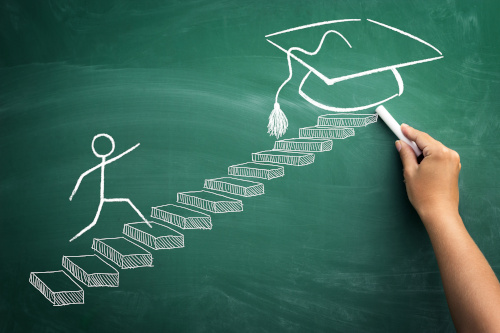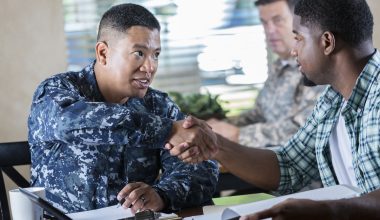College can be amazing – a place to learn new things, meet new people and figure out your future path. But let’s be honest, it’s also a big jump from high school. So, the question is: are YOU ready for college?
College readiness isn’t just about knowing your ABCs (although that’s important too!). It’s about having the skills and knowledge to succeed in college classes, manage your time well, and feel comfortable living on your own, maybe for the first time, or not.
In this article, we will break down everything you need to know about college readiness. From figuring out your study habits to feeling prepared for dorm life, to help you have a better idea of what college readiness means and how to make sure you’re ready to rock your college experience!
Table of contents
- What is College Readiness?
- How does a student become college-ready?
- Academic Readiness
- Social and Emotional Readiness
- Self-Directed Learning
- College and Career Exploration
- Technological Literacy
- Cultural Competence
- Financial Literacy
- College Application Process
- Academic and Career Guidance
- Transition Skills
- Resource Utilization
- Health and Wellness
- Professional Skills
- College Success Strategies
- Real-World Application
- FAQs
What is College Readiness?
College readiness refers to the preparedness of students to succeed in the academic environment of post-secondary education.
It entails more than just meeting the minimum entrance requirements of colleges and universities; it encompasses a comprehensive set of skills that enable students to engage effectively with the rigorous curriculum, adapt to the demands of independent learning, and navigate the social and emotional aspects of college life.
Achieving college readiness involves a combination of academic skills, critical thinking abilities, self-management, and social-emotional competencies. It is about equipping students with the necessary tools to excel in college and beyond, fostering a mindset of lifelong learning and personal growth.
Related Post: Top 30 Colleges Not Requiring Covid Vaccine For Fall & Winter
Why is College Readiness Important?
College readiness plays a pivotal role in shaping the trajectory of students’ educational and professional journeys. It is crucial for several reasons:
- Academic Success: College presents a more rigorous academic environment than high school, requiring students to possess a solid foundation of knowledge and skills. Being college-ready enables students to navigate complex coursework, effectively manage time, and engage in higher-order thinking, setting them up for academic success.
- Retention and Graduation Rates: College readiness positively correlates with retention and graduation rates. Students who enter college prepared are more likely to persist and complete their degrees within the expected timeframe. This not only enhances their career prospects but also reduces the financial burden associated with prolonged college stays.
- Smooth Transition: College readiness facilitates a smoother transition from high school to college. Students who possess the necessary skills and knowledge can adapt quickly to the new academic, social, and personal challenges they encounter, fostering a sense of belonging and reducing the likelihood of dropout.
- Long-term Success: College readiness cultivates skills that extend beyond the academic realm. It nurtures critical thinking, problem-solving, communication, and collaboration skills, which are vital for success in various careers and life endeavors.
How does a student become college-ready?
Academic Readiness
A solid academic foundation is one of the cornerstones of college readiness. Students should possess a deep understanding of core subjects such as mathematics, science, English, and social sciences.
They should have completed rigorous coursework, including advanced placement or honors programs, which can provide a preview of the academic demands they will encounter in college.
Furthermore, students need to develop critical thinking and problem-solving skills, enabling them to analyze complex issues, evaluate evidence, and formulate sound arguments.
College life requires students to navigate a multitude of responsibilities independently. Therefore, social and emotional readiness plays a vital role in a student’s overall success.
Time management and organizational skills are imperative, as students must balance coursework, extracurricular activities, part-time jobs, and personal commitments effectively.
Additionally, being adaptable and resilient in the face of challenges and setbacks allows students to bounce back and persist in their pursuit of academic excellence.
Moreover, strong interpersonal communication and collaboration skills foster positive relationships with peers, professors, and mentors, enhancing the overall college experience.
Related Post: How Long is a College Semester? How Many Hours is Full-Time College?
Self-Directed Learning
In college, students have a greater degree of autonomy and must take charge of their learning. Self-directed learning skills enable students to become proactive and independent learners.
Initiative and motivation drive students to seek out additional resources, explore topics beyond the classroom, and engage in self-study. Self-discipline and goal-setting are essential for managing time effectively and staying focused on academic priorities.
Developing effective study skills and research abilities equips students with the tools to gather and evaluate information critically, fostering a deep understanding of the subject matter.
College and Career Exploration
College readiness involves preparing students for the broader aspects of their educational journey and future careers. It begins with an awareness of the different majors and career paths available, allowing students to make informed decisions about their academic pursuits.
Researching colleges and universities helps students find institutions that align with their goals and values. Understanding financial aid options and scholarships is important in mitigating the financial barriers associated with higher education, enabling students to make informed choices about their college education.
Technological Literacy
In today’s digital age, technological literacy is an essential component of college readiness. Proficiency in digital tools and software enhances students’ ability to navigate online learning platforms, access electronic resources, and collaborate effectively with peers.
Information literacy and online research skills are vital for evaluating the credibility and relevance of digital sources.
Additionally, students must be aware of cybersecurity risks and exercise digital responsibility, protecting their personal information and respecting the privacy of others in online environments.
Also, read: Is the Use of Technology in Schools a Good Thing?
Cultural Competence
As colleges and universities become more diverse, cultural competence plays a critical role in fostering inclusive and respectful environments. Students should exhibit respect for diversity and inclusion, embracing different perspectives and backgrounds.
Awareness of cultural norms and sensitivities helps students navigate intercultural interactions with empathy and respect.
Developing a global perspective and honing cross-cultural communication skills prepares students to engage with people from diverse backgrounds and work collaboratively in multicultural settings.
Financial Literacy
Financial literacy is an essential skill for college readiness, as it equips students with the knowledge and understanding to manage their finances responsibly.
Budgeting and financial planning skills allow students to allocate their resources effectively, covering tuition fees, living expenses, and other financial obligations.
Understanding student loans and debt empowers students to make informed decisions about borrowing and repayment options.
Financial responsibility and decision-making skills help students develop a healthy relationship with money and make sound financial choices throughout their college journey and beyond.
College Application Process
Navigating the college application process can be daunting for students. College readiness includes proficiency in writing compelling essays and personal statements that showcase their unique experiences, interests, and aspirations.
Familiarity with standardized tests such as the SAT or ACT and effective test preparation strategies can significantly impact a student’s admission prospects.
Requesting letters of recommendation and actively participating in extracurricular activities help students build a strong profile that reflects their diverse talents and interests.
Academic and Career Guidance
Access to academic advisors and counselors is instrumental in guiding students through their college journey. These professionals offer expertise in choosing majors, exploring career options, and creating academic roadmaps.
Engaging in meaningful conversations about potential majors and career goals helps students align their academic pursuits with their long-term aspirations. Advisors also guide course selection, internships, research opportunities, and other experiences that enhance students’ professional development.
Transition Skills
Transitioning from high school to college requires students to develop specific skills that promote independence and success. Independent living skills, such as managing personal finances, maintaining a healthy lifestyle, and practicing self-care, are crucial for students living away from home.
Time management and organizational skills ensure students can balance academic, personal, and social commitments effectively. Managing stress and prioritizing mental well-being are also important during this transitional period.
Resource Utilization
Colleges offer a plethora of resources and support services to assist students in their academic journey. Accessing academic resources such as libraries, tutoring centers, and online databases allows students to deepen their understanding of course material and seek additional help when needed.
Using online learning platforms and educational technology enhances the learning experience and provides opportunities for self-paced study. Students are encouraged to proactively seek help and support from professors, advisors, and peers, fostering a supportive learning environment.
Health and Wellness
Maintaining physical health and well-being is crucial for students’ overall success in college. Engaging in regular physical exercise, getting adequate sleep, and adopting healthy eating habits contribute to students’ overall well-being and cognitive functioning.
Managing stress and practicing self-care strategies, such as mindfulness, meditation, and relaxation techniques, help students cope with the demands of college life effectively.
Additionally, seeking mental health support on campus, such as counseling services, fosters emotional well-being and resilience.
Related Post: Should College Be Free: YES/NO? Pros And Cons
Professional Skills
College readiness encompasses the development of professional skills that prepare students for the workforce. Resume writing and interview preparation skills are vital for securing internships, part-time jobs, and post-graduation employment.
Networking and professional etiquette play a significant role in building relationships and expanding career opportunities. Engaging in internships and experiential learning opportunities allows students to apply classroom knowledge in real-world settings, gaining practical experience and enhancing their employability.
College Success Strategies
To thrive in college, students must employ effective strategies that promote academic success. Taking comprehensive notes during lectures, using active listening techniques, and participating in class discussions contribute to a deeper understanding of the material.
Effective time management and prioritization skills help students meet deadlines and allocate sufficient time for studying, assignments, and projects. Engaging in active learning methods, such as group work, collaborative projects, and hands-on activities, enhances the learning experience and promotes critical thinking skills.
Real-World Application
Connecting classroom learning to real-life situations is a hallmark of college readiness. Students should have opportunities to apply their knowledge and skills in internships, co-op programs, or research projects.
These experiences provide practical contexts where students can develop problem-solving abilities, critical thinking skills, and creativity. Bridging the gap between theory and practice prepares students for the challenges they may encounter in their future careers.
Related Post: What Are the Pros and Cons of Using 529 Plans? What it is & How it Works
How Can Teachers Measure College Readiness?
Teachers play a vital role in assessing and promoting college readiness among their students. Several strategies and tools can aid in measuring students’ preparedness:
- Assessments: Formative and summative assessments provide valuable insights into students’ mastery of core subjects, critical thinking abilities, and analytical skills. Teachers can design assessments that mirror college-level expectations and provide constructive feedback to guide students’ growth.
- Rubrics: Utilizing rubrics helps teachers evaluate students’ work holistically and objectively. Rubrics outline specific criteria and expectations, enabling teachers to assess students’ ability to meet college-level standards in areas such as writing, research, and problem-solving.
- Self-Reflection and Goal Setting: Encouraging students to reflect on their strengths, areas for improvement, and personal goals fosters self-awareness and metacognitive skills. Teachers can guide in setting realistic targets aligned with college readiness and support students in monitoring their progress.
How do Schools Measure College Readiness?
Schools also play a crucial role in evaluating and promoting college readiness. Here are some common methods employed by educational institutions:
- College Entrance Exams: Standardized tests like the SAT or ACT assess students’ aptitude in critical areas such as mathematics, reading, and writing. These exams provide colleges with a common benchmark for evaluating applicants’ readiness for higher education.
- College Placement Tests: Many colleges administer placement tests to assess incoming students’ proficiency in specific subjects like mathematics or writing. These tests help determine appropriate course placements and identify areas where students may require additional support.
- High School GPA and Course Rigor: Schools consider students’ high school grade point average (GPA) and the rigor of their coursework as indicators of college readiness. A strong GPA, especially in challenging courses like Advanced Placement (AP) or International Baccalaureate (IB), demonstrates academic preparedness.
- College Readiness Programs: Some schools offer specialized programs designed to cultivate college readiness skills, such as college-level coursework, mentorship opportunities, or workshops on study skills, time management, and college application processes.
Related Post: Is a 2.1 Degree Good? Colleges You Can Get Into With A 2.1 GPA
How do you Prepare Students for College?
Preparing students for college involves a multi-faceted approach that combines academic instruction, guidance, and support. Here are some strategies educators can employ:
- College Counseling: Schools should provide comprehensive college counseling services to help students navigate the college application process, explore suitable colleges, and understand financial aid options. Personalized guidance ensures students make informed decisions aligned with their aspirations.
- Rigorous Curriculum: Offering rigorous courses, such as honors, AP, or IB programs, exposes students to college-level expectations and develops essential academic skills. A challenging curriculum fosters critical thinking, research skills, and independent learning.
- Cultivating Study Skills: Teaching effective study techniques, time management, and organizational skills equips students to handle the increased workload and demands of college. Strategies such as note-taking, active reading, and prioritization aid in optimizing learning and retention.
- Encouraging Extracurricular Involvement: Participation in extracurricular activities, clubs, and community service fosters leadership, teamwork, and time management skills. Engaging in diverse experiences helps students develop a well-rounded profile that colleges value.
What College Readiness Skills Does Every Student Need?
To succeed in college, students should cultivate a range of essential skills:
- Critical Thinking: The ability to analyze information, evaluate arguments, and think logically and creatively is fundamental for college-level coursework.
- Effective Communication Strong oral and written communication skills are crucial for participating in class discussions, presenting research, and collaborating with peers.
- Research and Information Literacy Proficiency in conducting research, evaluating sources, and properly citing information enables students to engage in scholarly inquiry and produce high-quality work.
- Self-Management: College demands self-discipline, time management, and organizational skills. Students must learn to balance academic responsibilities, extracurricular activities, and personal commitments.
- Resilience and Adaptability College presents various challenges, from rigorous coursework to new social environments. Students need resilience and adaptability to persevere through setbacks and adjust to unfamiliar situations.
Related Post: 25+ Cheap and Easy College Students Meals in 2024
FAQs
a student has an open mind and willingness to learn in addition to the necessary basic skills that will allow them to learn the course material with confidence.
recognizing the need to change, weighing the costs and benefits, and, when benefits outweigh costs, planning for change
physical readiness, emotional readiness, experiential readiness, and knowledge readiness.
motivation, prior knowledge, computer skills/ICT Skills, and learning preferences.
Conclusion
College readiness serves as a bridge between high school and the world of higher education, preparing students for the academic, social, and personal rigors that lie ahead.
It encompasses a broad range of skills, knowledge, and attributes that empower students to succeed in higher education.
Academic readiness, social and emotional readiness, self-directed learning, college and career exploration, technological literacy, cultural competence, financial literacy, and other factors contribute to a student’s overall preparedness for college.
As students develop these skills, they are better equipped to navigate the challenges, make informed decisions, and seize the opportunities that college has to offer. College readiness is an ongoing process that supports continuous growth and sets the stage for lifelong learning.
References
- wgu.edu/ – what is college readiness
- collegeraptor.com/– college readiness
- advantages-dls.com/-what is college readiness
- apexlearning.com/– college readiness




